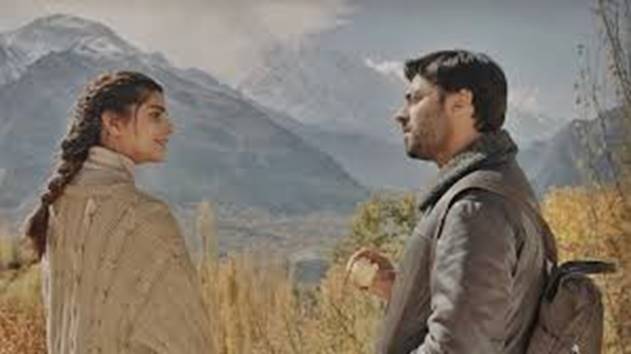
This brigade has found a new target: Asim Abbasi’s Barzakh, a drama released on YouTube
‘Not Pakistan’
By Muna Khan
Pakistan

Nothing gets me into a tizzy faster than hearing some iteration of ‘This is not Pakistan’. And inevitably, women and/ or young men attempting to smash the patriarchy are the source of someone’s outrage.
Those shocked by whatever new thing ‘is not Pakistan’ are in denial, stuck in a notion that the XYZ period in the country was better. They are unable to move on and believe that folks living their lives as they wish threaten the country’s identity, and its sanctity.
I have experienced the ‘not Pakistan’ brigade, especially as a journalist, reporting or commissioning stories that pushed boundaries. For example, in the early 2000s, when I was editing a mid-weekly magazine at Dawn, some of our stories caught their ire. To name a few: a fortnightly column called ‘Single Women over Thirty (SWOT)’, a cover story on dating over the decades, and Dr Riffat Hasan’s critique of Farhat Hashmi and Asma Jahangir. Stories of honor killing, sexual assault, and blasphemy did not elicit the same outrage. I suppose we accepted this as the norm.
We were inundated with feedback after an advertisement for a sanitary pad was printed on the back of the magazine. It was not a one-off ad so the complaints sort of grew as readers saw the ad every week. We received versions of ‘this is no longer a family magazine’ emails and calls; even colleagues were surprised about the ad’s prominent placement. My editor (the late and great) Tahir Mirza too received such calls but he always took it in his stride. People need time to accept change, he’d say.
What is the country’s reality?
When sanitary pad advertisements migrated to TV, you heard some iteration of ‘Kya behudgi hai yeh’ (what is this obscenity). The ads were not coy like the family planning ones where two roses represented contraceptives. This was before such ads were banned altogether in 2016 to prevent exposure of such material to inquisitive children. Two steps forward, 200 steps back.
The point is not to recall all the complaints I’ve faced and witnessed but to demonstrate how people’s resistance is not to change but to progress, especially when it comes to women and young people. The ‘this is not Pakistan’ brigade knows about menstruation, contraceptives, honour crimes, rape and so forth but they do not want it seen in the paper, on screens, etc. They do not want us to tell stories of ground realities as we see fit.
This brigade has found a new target: Asim Abbasi’s Barzakh, a drama released on YouTube which has among its many themes, one about same-sex relationship. Detractors all over social media will have you believe this is enough to destroy the country’s existence. At the time of writing, we are five episodes in of a beautifully shot story that also — and not exclusively — sheds light on the situation of the LGBT community in this country. How do you deny someone’s existence?
Abbasi is no stranger to the ‘this is not us’ brigade. His earlier drama, Churails, released on an Indian streaming platform, was about a group of diverse women who come together to form a detective agency to find cheating husbands. Essentially, the story was about the injustices faced by women. It was briefly banned in Pakistan after a scene from the show went viral on social media in which a character admitted to physical intimacy to get ahead in her career. The fury was that it promoted vulgarity. Just like Barzakh does, they say.
People exercising consent is vulgar but committing violence against them is not.
If all this is not Pakistan, what then is the country’s reality?
I do not have the answer but I know it cannot be a singular story centered around an ideological identity that teaches hatred for others; that issues ghaddari certificates freely, that cares not for the most marginalized in this country.
I’ll leave you with a message I received a fortnight ago on X from a person who has since asked I not share their name because they fear someone, somewhere may recognise their identity. They asked me to write about them and their friends, university students who will soon graduate, struggling to find purpose. They have no one to guide them about career opportunities; their teachers also want to leave the country. Some of them cannot leave because they do not have the money needed to give to agents who can get them visas or take them via the illegal route. They will take on whatever job they can find to care for their families because their parents cannot make ends meet anymore. They know this means giving up whatever dreams they have.
“Write about so many people like us who bought into a dream about a new Pakistan but are living in a nightmare.”
This is a reality worth thinking about.
(The writer is a journalism instructor. Dawn)

